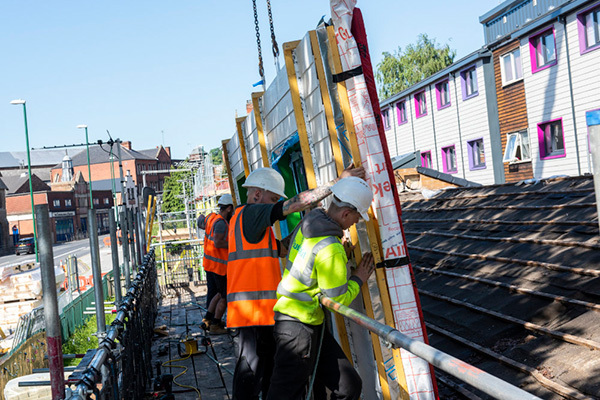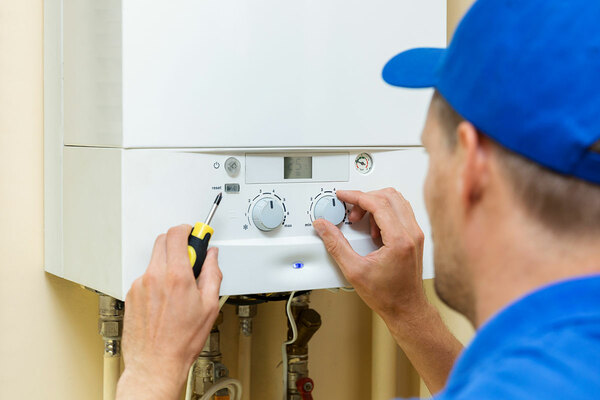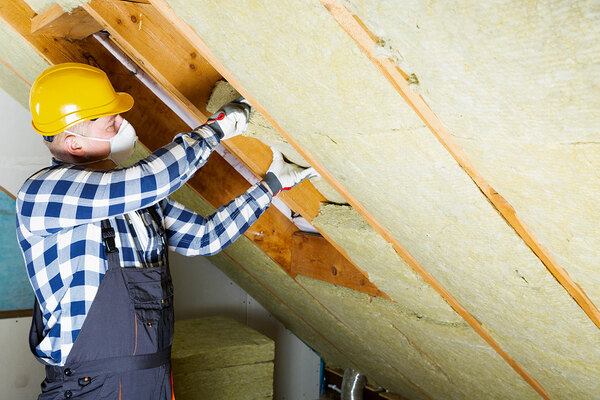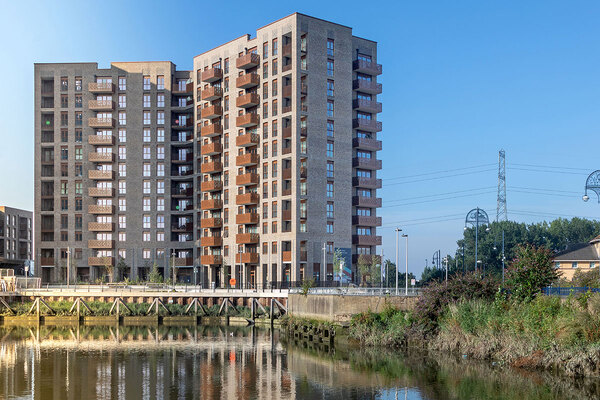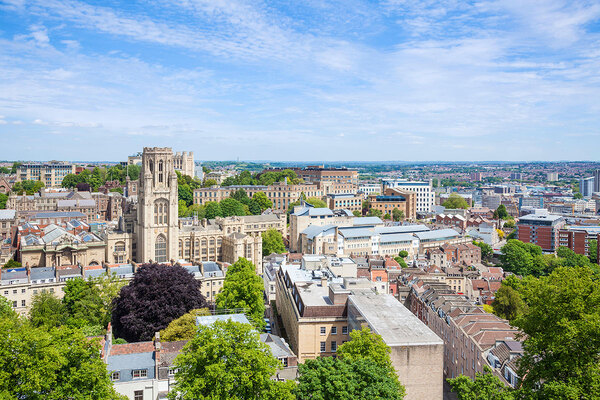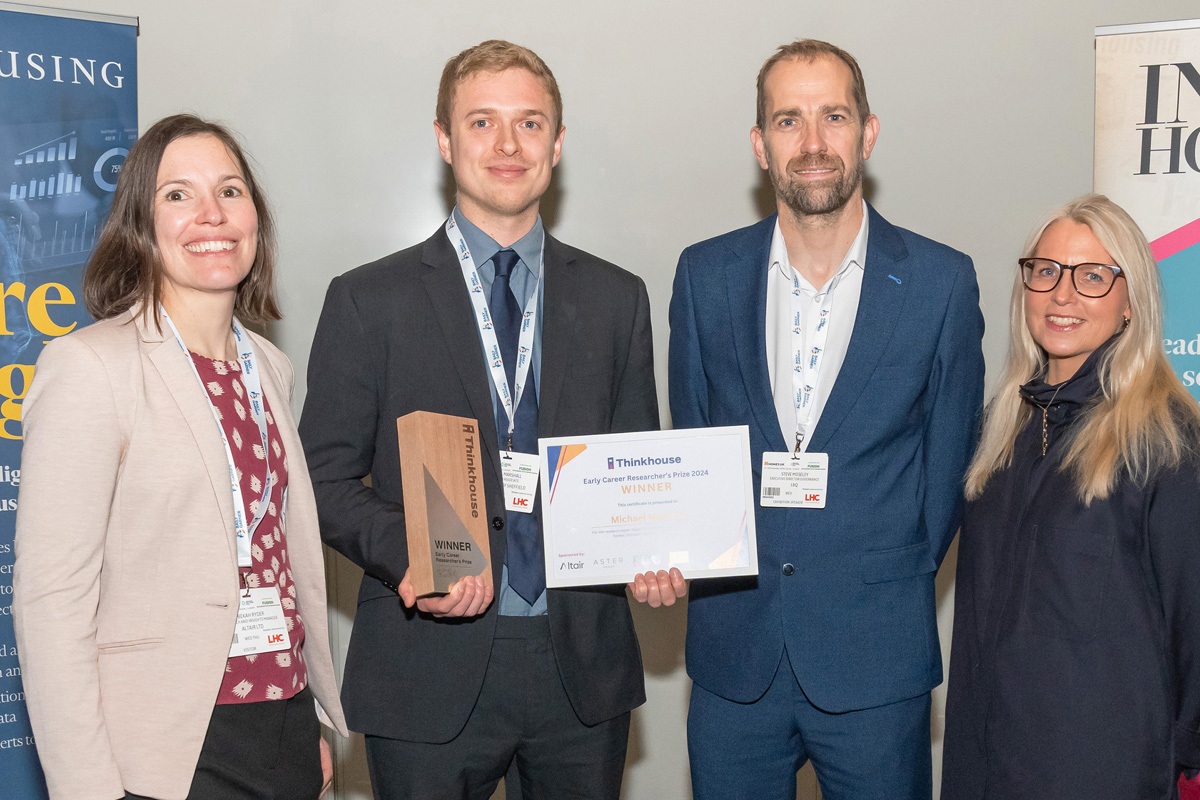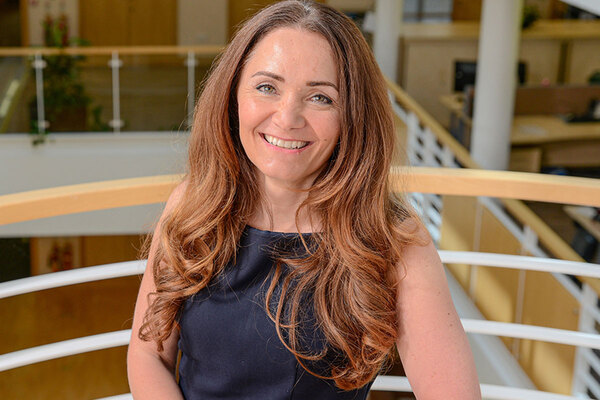You are viewing 1 of your 1 free articles
Cost of retrofitting all social homes in the UK to zero carbon to top £100bn, exclusive research reveals
The cost of retrofitting all social housing in the UK to zero carbon standards is currently on track to hit £104bn, exclusive research by Inside Housing has revealed.
Responses from 207 housing associations and stock-owning councils to Inside Housing’s survey and Freedom of Information Act requests has shown the mean cost of decarbonisation per social home is £20,742.
Multiplied by the roughly five million social homes in the UK, that puts the total decarbonisation cost for the sector at £104bn.
More than a fifth (46) of the social landlords that responded to the survey could provide an estimate of how much it would cost on average to reach net zero with their housing stock, with answers ranging from less than £3,000 per home to £50,000 per home.
At £2,842 per home, London-based Optivo provided the lowest net zero cost, but this was largely due to the fact that the figure did not include planned investments such as roof and window replacements, as well as the sum for replacing gas heating with electric alternatives.
North West Leicestershire Council provided the highest total decarbonisation cost, stating it would cost “up to £50,000 per unit” for a comprehensive retrofit of its 4,200 properties and therefore it expected a total bill of £210m.
The Northern Ireland Housing Executive had the highest total decarbonisation cost, estimating it would cost £1.7bn to retrofit its 85,162 homes – an average of roughly £20,000 per home.
In its election manifesto, the Conservative party pledged a 10-year social housing decarbonisation programme worth £3.8bn, but details about when it will go ahead have since been unclear – so far, only a £50m pilot scheme has been produced.
Experts told Inside Housing there were many factors that could affect landlords’ decarbonisation costs, including the age and condition of their stock.
Landlords may also calculate their decarbonisation costs differently, with some factoring already planned work, others keeping it separate.
John Kiely, director of housing and public sector at Savills, said: “We’ve had costs vary by almost 100% between different associations, depending entirely upon what they’ve got in their business plans at the moment, what their stock looks like and how much work they’ve done in the past.”
Neal Ackcral, chief property officer at Hyde, said decarbonisation costs are “tied up with the substantial investment that will be needed to meet other upcoming key legislation, including the Fire Safety Bill, the draft Building Safety Bill and the Future Homes Standard”.
The cost of technology will also affect the final decarbonisation cost for the sector, with landlords hopeful that the cost of items such as heat pumps will reduce as demand increases.
Inside Housing’s research also revealed that the average standard assessment procedure (SAP) rating of the UK’s social housing stock was 70.1, based on the average figures provided by 167 landlords.
This can be compared to data from the latest English Housing Survey, which found that the average SAP rating in 2018 for all housing stock in England, including private homes, was 63.
A SAP rating is the main unit of measurement currently used by the government to assess the energy performance of homes. A home with a rating of 100 would effectively have a cost of £0 for heating, hot water and lighting.
The UK government has set a target for the entire UK to achieve net zero carbon emissions by 2050, while the Scottish government has set a target of 2045.
Inside Housing’s survey revealed that 43 social landlords (21%) have set targets to achieve net zero within their housing stock before the target set by the national government.
Most of these targets were set by councils and included 31 local authorities aiming to hit net zero within either their council area as a whole or their housing stock specifically by 2030.
Sign up for our daily newsletter
Already have an account? Click here to manage your newsletters
